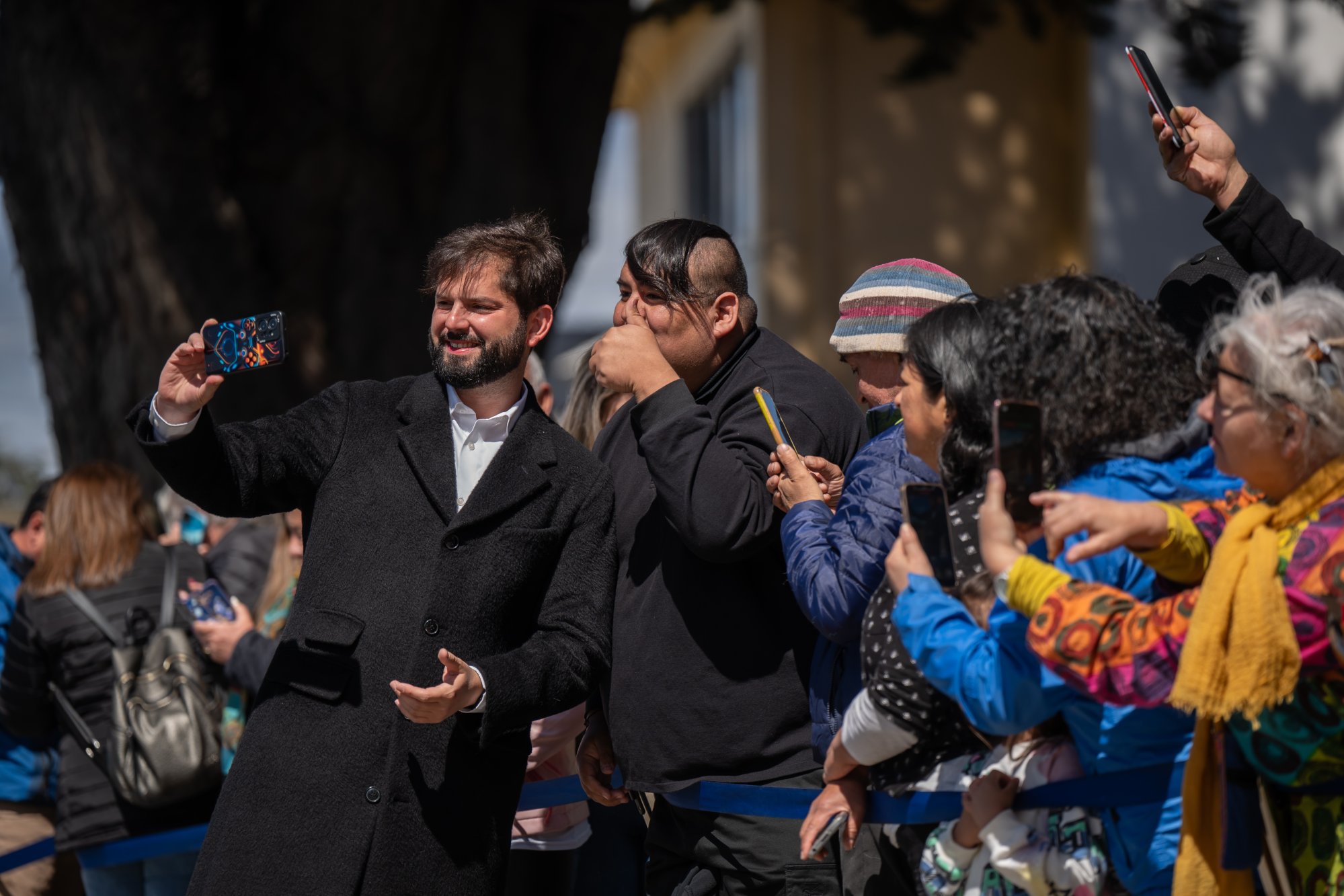
Voters in Chile reject second shot at new constitution
- The process to write a new constitution began after 2019 protests that paralysed Chile
- Result means that the current charter from the Pinochet era will remain in place
Chilean voters rejected a proposed new constitution drafted by a conservative-led committee, electoral service Servel said, meaning the charter imposed during the dictatorship of Augusto Pinochet will remain in force.
With 99 per cent of the referendum ballots counted, the “against” option prevailed with 55.75 per cent of the vote, compared to 44.25 per cent in favour, according to Servel, just hours after voting ended around 6pm on Sunday.
The latest version of a new proposed constitution was overseen by the far-right opposition Republican Party after voters roundly rejected a progressive draft in September 2022 that attempted to enshrine environmental protections and the right to elective abortion.
Leftist President Gabriel Boric said last month that it would be his last attempt to reform the constitution, in order to focus on stability and long-term development. His government had adopted a neutral position on the new draft.

“Today we are experiencing a new … day that, no matter the result, strengthens our democracy,” Boric said after voting in his hometown of Punta Arenas.
Polls, banned in the two-week run-up to the referendum, had predicted another rejection.
Chile marks 50 years since US-backed coup that ushered in dictatorship
The process to rewrite the 1980 constitution, adopted under the Augusto Pinochet military dictatorship, began as a bid to ease mass protests that broke out in 2019 against social inequality.
However, four years after the protests erupted, enthusiasm has been dampened by the pandemic, inflation and economic stagnation, a growing sense of insecurity, and voter fatigue.
“There is not much spirit, as this is an exhausting process,” information technology worker Nicolas Mora, 29, said after voting.
Paulina Salas, a 56-year-old homemaker, said she hopes that after this vote Chile can return to calm.
There is a need for “stability, that people can go back to work, to have safety with regard to their job and everyday life,” Salas said.

The opposition presented the vote as a referendum on Boric, who rode the wave of public discontent to be elected Chile’s youngest-ever leader in 2021 at 35.
Boric, whose approval has plummeted to around 30 per cent, had already suffered a setback in May when Chile’s far-right Republican Party came in first in a nationwide vote to choose the members of the constitution rewrite committee.
The 1980 constitution is widely blamed for allowing companies and the elite to enrich themselves at the expense of the poor, working classes.
The first rewrite included stronger protections for Indigenous rights and proposals to protect natural resources such as water, and required women to hold at least half of positions in public institutions.
Chile’s president runs into trouble, just 6 weeks in office
Heiss said the latest rewrite “falls between the 1980 constitution and one even more to the right”, especially on issues like abortion and public safety.
The new version would have aimed at enshrining the right to life from conception, which experts believe could lead to a challenge of existing laws.
Abortion was banned in Chile until 2017, when it was allowed in cases of rape, when the mother’s life is at risk, or the fetus is declared unviable.
The new draft also would have allowed for the expulsion in “the shortest possible time” of undocumented immigrants, with the right blaming rising crime on an influx of Venezuelans fleeing economic crisis in their country.
The latest proposed constitution would have for the first time recognised Indigenous peoples, which make up 12 per cent of the population, but did not address their request for greater autonomy.

.png?itok=arIb17P0)